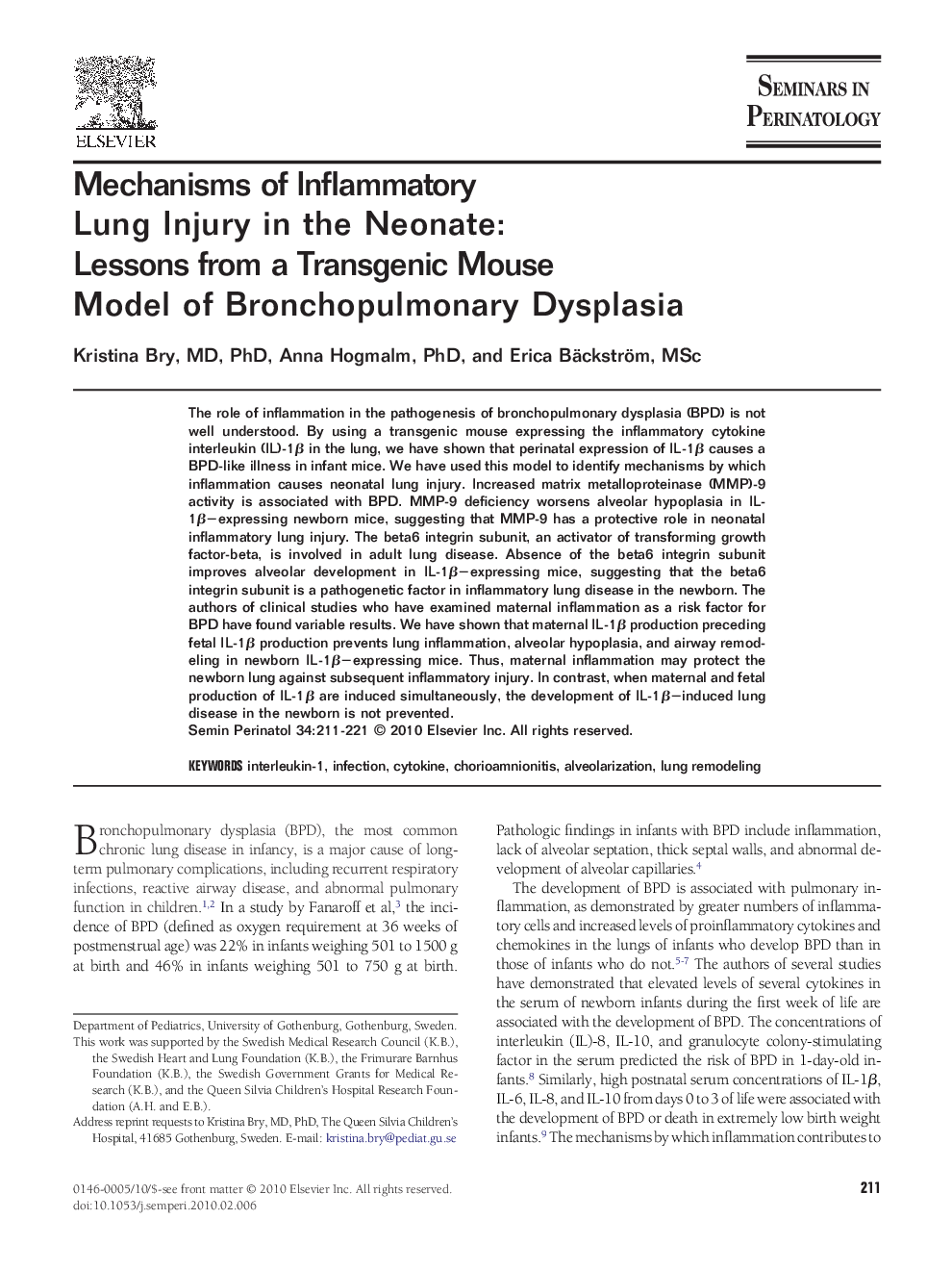| Article ID | Journal | Published Year | Pages | File Type |
|---|---|---|---|---|
| 3836448 | Seminars in Perinatology | 2010 | 11 Pages |
The role of inflammation in the pathogenesis of bronchopulmonary dysplasia (BPD) is not well understood. By using a transgenic mouse expressing the inflammatory cytokine interleukin (IL)-1β in the lung, we have shown that perinatal expression of IL-1β causes a BPD-like illness in infant mice. We have used this model to identify mechanisms by which inflammation causes neonatal lung injury. Increased matrix metalloproteinase (MMP)-9 activity is associated with BPD. MMP-9 deficiency worsens alveolar hypoplasia in IL-1β−expressing newborn mice, suggesting that MMP-9 has a protective role in neonatal inflammatory lung injury. The beta6 integrin subunit, an activator of transforming growth factor-beta, is involved in adult lung disease. Absence of the beta6 integrin subunit improves alveolar development in IL-1β−expressing mice, suggesting that the beta6 integrin subunit is a pathogenetic factor in inflammatory lung disease in the newborn. The authors of clinical studies who have examined maternal inflammation as a risk factor for BPD have found variable results. We have shown that maternal IL-1β production preceding fetal IL-1β production prevents lung inflammation, alveolar hypoplasia, and airway remodeling in newborn IL-1β−expressing mice. Thus, maternal inflammation may protect the newborn lung against subsequent inflammatory injury. In contrast, when maternal and fetal production of IL-1β are induced simultaneously, the development of IL-1β−induced lung disease in the newborn is not prevented.
